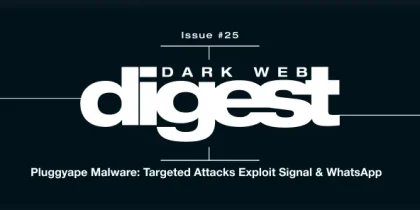Your email could be compromised.
Scan it on the dark web for free – no signup required.
Imagine trusting your car’s software company with your personal information — names, Social Security numbers, and even driver’s license numbers — only to learn that hackers have quietly lifted this data.
That’s exactly what happened with Hyundai AutoEver America (HAEA), the IT backbone for Hyundai, Kia, and Genesis in North America.
Reports now confirm that up to 2.7 million Social Security and driver’s license numbers may have been exposed, making this one of the largest automotive IT-related breaches in recent memory.
This isn’t just a corporate data leak — it’s a personal threat. Once data like this hits the dark web, fraudsters can weaponize it for identity theft, phishing scams, and credential-stuffing attacks.
The Breach at a Glance
- Breach Target: Hyundai AutoEver America, the IT arm supporting Hyundai Motor Group brands in North America.
- Date of Breach: Attackers accessed systems between February 22 and March 2, 2025.
- Data Compromised: Up to 2.7 million Social Security numbers, driver’s license numbers, and personal identifiers.
- Number of Affected Individuals: Likely in the millions; exact number not officially confirmed.
- Cause: Hacker intrusion into HAEA’s IT systems; no evidence of ransomware claimed.
- Immediate Action by Hyundai AutoEver: Systems were secured, notifications sent to state authorities, and additional monitoring implemented.
- Dark Web Tip: Run a free Dark Web Exposure Scan to see if your data is at risk.
What Happened
In late February 2025, Hyundai AutoEver America (HAEA) — the North American IT and software division of Hyundai Motor Group — fell victim to a targeted cyberattack.
The company detected unauthorized access to its systems on March 1 and swiftly locked out the intruders by March 2. Investigations revealed that the attackers had been inside for at least nine days, probing internal IT environments where employee and operational data were stored.
Indeed, the breach stemmed from a cyber intrusion targeting HAEA’s IT infrastructure. While specific entry methods haven’t been disclosed, security analysts suggest the hackers may have exploited weak access controls or unpatched vulnerabilities in vendor systems.
Unlike customer-facing breaches, this attack focused on the IT backend, where sensitive employee and client records were stored. This type of breach is particularly dangerous because it involves personally identifiable information (PII) that can be directly monetized on the dark web.
What Hyundai Said
Although Hyundai AutoEver says it found no definitive proof that information was exfiltrated, forensic evidence suggests that threat actors accessed databases containing sensitive personal data — including names, Social Security numbers, and driver’s license information.
Hyundai AutoEver hasn’t said exactly how many people were affected, but regulatory filings show the breach reached multiple states. The upper limit is potentially massive: HAEA’s systems connect to 2.7 million vehicles across North America.
To put that in perspective, that’s roughly the entire population of Chicago potentially at risk. However, only individuals confirmed to be affected will receive notification letters.
What Was Leaked (or at Risk)?
Here’s what reports and investigations indicate was exposed:
- Full names and personal identifiers of vehicle owners and employees.
- Social Security numbers of potentially 2.7 million individuals.
- Driver’s license numbers tied to these accounts.
- Additional personal data stored in HAEA systems, which could include addresses, phone numbers, and email addresses.
Why this is critical: Even if accounts aren’t linked to financial information directly, leaked SSNs and driver’s licenses can enable identity theft, credit fraud, and synthetic ID creation.
Who’s Behind It
No hacker group has claimed responsibility. Analysts suggest it could be a state-affiliated actor or sophisticated cybercrime group specializing in large-scale PII theft.
- Even without a public claim, stolen data may already be shared within underground forums or with brokers who monetize identity information.
- The sheer size of the breach means the exploitation window is significant: the data could fuel scams across multiple platforms, from banking to insurance to vehicle financing.
What’s Happening on the Dark Web
Dark web monitors are already flagging forum chatter and credential bot logs that reference Hyundai-linked email domains and employee network access points.
While no full database has surfaced yet, individual SSN–DLN pairings (Social Security + Driver’s License combinations) are being spotted in mixed “identity combo” dumps — often used by scammers to build synthetic identities for:
- Auto loan fraud
- Vehicle registration scams
- Insurance claim exploitation
This suggests the stolen Hyundai AutoEver data — even if small in scope — could be merged with other breached datasets to create a broader mosaic of compromised consumer identity profiles.
This proves what security researchers were already warning: breaches of this magnitude are often quickly resold or bundled for identity theft.
- Fraudsters can use SSNs and driver’s licenses to open credit lines or create synthetic identities.
- Personal information from backend IT systems is highly valuable because it’s harder to trace than corporate user databases.
- Once a data set reaches the dark web, it often circulates for months or years, fueling phishing campaigns, “proof-of-access” trades, and automated credential attacks.
Why This Breach Hits Hard
While the victim count appears limited, this breach stands out for where it happened:
- Hyundai AutoEver isn’t just an IT firm — it powers connected systems across Hyundai, Kia, and Genesis.
- That makes it a critical node in the automotive data supply chain — storing both employee and vendor data, and potentially serving as a stepping stone to vehicle telematics systems in future attacks.
Moreover, the type of data compromised — SSNs and driver’s license numbers — cannot be easily changed, unlike passwords. Once sold, these identifiers can fuel years of downstream fraud.
Moreover, this isn’t a typical platform breach; it’s a backend IT compromise with direct PII access:
- High-value targets: SSNs and driver’s license numbers are premium commodities for identity thieves.
- Scale: Millions of individuals could be affected simultaneously.
- Long-term risk: Unlike passwords, SSNs and licenses cannot be “changed.” They can be exploited for years, fueling identity fraud, loans, and tax scams.
- Dark web monetization: Such data sets are frequently bundled, repackaged, and resold, creating a long tail of risk for victims.
What Experts Are Saying
Cybersecurity researchers warn that the Hyundai AutoEver breach reflects an emerging trend of IT service providers being targeted as indirect gateways into larger manufacturing ecosystems.
These suppliers hold valuable access credentials, vendor contracts, and backend integration keys — gold for attackers looking to map corporate infrastructure or stage follow-up attacks against carmakers or dealerships.
The incident echoes a broader shift from “data theft for ransom” to data theft for intelligence — where the goal isn’t immediate extortion but long-term infiltration.
What You Should Do Right Now
If you’ve interacted with Hyundai AutoEver or one of its partner systems, take the following steps:
- Run a Free PureVPN’s Dark Web Exposure Scan (already linked above) to see if your information appears in breach logs or credential dumps. In ~30 seconds, you’ll learn:
- Are you exposed?
- How severe is the compromise?
- How recent was the leak?
- How many breaches include your account?
- Freeze your credit reports to prevent identity-based loan or lease applications.
- Enable monitoring alerts for any suspicious activity tied to your SSN or driver’s license.
- Avoid phishing emails pretending to offer breach compensation or free identity protection — these often emerge weeks after automotive-related breaches.
- Monitor your credit reports for unusual activity. In the U.S., visit AnnualCreditReport.com for free reports.
- Monitor government notices: Be alert for IRS or DMV correspondence that seems unusual.
Early detection is key — once your PII circulates on the dark web, it can fuel attacks for years.
The Broader Dark Web Picture
The Hyundai AutoEver case underlines a quiet but accelerating pattern: industrial digital supply chains are now prime targets for identity theft operations.
From auto suppliers to energy and logistics, attackers are blending espionage tactics with credential theft, turning operational data into a dark web commodity.
Even if Hyundai AutoEver’s internal systems are secure now, the data already accessed may circulate for months before surfacing in underground markets — often repackaged, re-encrypted, and resold across multiple criminal forums.
What’s Next — Final Thoughts
The Hyundai AutoEver breach is a reminder that backend IT systems are critical points of failure. Even if your personal accounts weren’t directly compromised, the PII stored in vendor IT systems can be sold and weaponized across multiple sectors.
- Keep monitoring your identity and financial accounts.
- Take advantage of free scans and alerts.
- Treat any sensitive government-issued ID as a long-term security asset.
Every data leak like this is a wake-up call: digital trust starts with safeguarding the foundations, not just user-facing applications.
Why Subscribe?
Every week, Dark Web Digest cut through the noise and bring you the breaches that matter, the tactics behind them, and the steps you need to protect yourself — all in a conversational, no-fluff format.
If you don’t want to be the last to know when your personal data hits the dark web, subscribing is your safety net.
👉 Stay ahead, stay secure, stay subscribed.
Note: This edition of Dark Web Digest is based on publicly available information as of Nov 11th, 2025.








